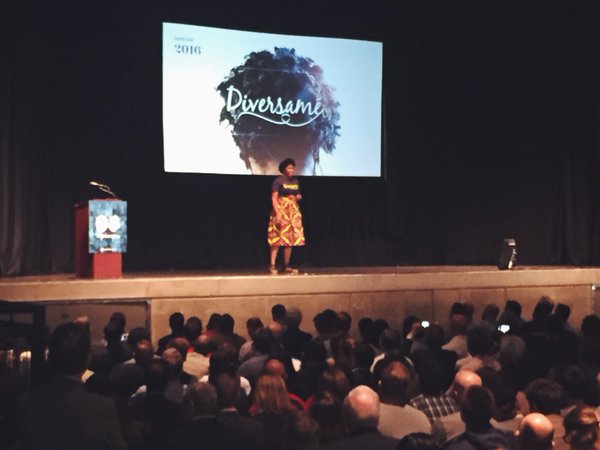By Kris B. Mamula
Pittsburgh Post-Gazette
WWR Article Summary (tl;dr) Great article that takes a look at minority entrepreneurs in Pittsburgh’s startup economy. It’s not just funding issues that can be a challenge. Successful minority entrepreneurs say some minority-owned businesses can be handicapped by not having family members or other mentors who can be helpful with getting a business off the ground.
Pittsburgh Post-Gazette
Starting a business for Tamiah Bridgett began with getting some white guys to understand African-American hair — no small thing, she quickly learned.
The 38-year-old woman founded Diversame a year ago, a company that is marketing a blow dryer specifically designed for naturally curly hair. Regular hair dryers can turn curly locks into a frizzy mess after washing, which is impossible to style, Ms. Bridgett said.
“Getting investors to understand the larger hair care problems has been one of the biggest challenges,” said Ms. Bridgett, an alumni resident and mentor at AlphaLab, a small business incubator located on the same East Liberty street where she grew up.
“Most of them are white men who don’t understand the complexities of black hair.”
Ms. Bridgett has raised $75,000 for her company and is planning a second fund raising round. Her hair dryer is not yet available in stores, but Pittsburgh salon icon Philip Pelusi has endorsed it, giving a new product a much needed boost.
Minority entrepreneurs face all of the challenges of others who set out to be their own boss, often with extra hurdles thrown in as Ms. Bridgett’s experience shows. But those extra speed bumps haven’t seemed to faze minority entrepreneurs in Pittsburgh’s startup economy.
Minority participation in the startup economy nationwide was low in 2015, representing just 10 percent of the entrepreneurs who pitched business ideas to affluent individuals who invest in new businesses, called angel investors, according to a survey by the Center for Venture Research at the University of New Hampshire. It might not have helped that minority angels accounted for just 5 percent of the angel population.
For black entrepreneurs, the bigger picture was gloomier still. A report last year by New York City-based market research firm CB Insights found just 1 percent of startups that received funding from any source were black. And just 8 percent of funded startups were started by women, according to the survey.
Call Pittsburgh provincial, but the city may be outpacing the rest of the country in getting minorities involved in startups.
North Side-based Innovation Works is the region’s biggest tech company investor, and two out of three of the startups at its AlphaLab were formed by women or minorities during the past three years, according to Terri Glueck, director of community development.
“We have really been ramping up inclusive innovations,” Ms. Glueck said. “It’s just better business.”
Innovation Works, the sixth most active seed investor in the country, invested $5.5 million in tech companies in 2015, according to its annual report. Investments generally range between $100,000 and $150,000.
The numbers are also promising at the University of Pittsburgh’s Innovation Institute, which sponsors a student business accelerator called the Blast Furnace. Of 13 student teams and 28 members in a current class, one quarter are women and 35 percent are non-white, according to executive-in-residence Philip Brooks. The Blast Furnace is in its second year.
It’s not just funding issues that can be a challenge.
Minority-owned businesses can be handicapped by not having family members or other mentors who can be helpful with a startup, successful minority entrepreneurs have said. Hill District resident Carla Boyd formed Be Smart Energy LLC in 2014, the same year the company received $100,000 from Urban Innovation21, a public-private partnership based in the Hill District that helps new businesses in underserved communities.
But the money dried up after the purchase of computer equipment and paying legal expenses, said Ms. Boyd, who is trying to raise $100,000 to get the contracting company off and running. Previously, she spent a decade running an after-school program for at-risk youth, so she said she’s still learning the construction trade.
Ms. Boyd said the biggest barrier, for her, has been not having family members or mentors who could help guide her on starting her business.
Be Smart rehabilitates residential and commercial buildings while updating them with solar energy equipment. For now, Ms. Boyd works as a part-time instructor at Community College of Allegheny County.
She said she was heartbroken after recently losing out on a general construction contract.
“They said, you’re not union,” Ms. Boyd said. “I could cry. But I never quit anything in my life.”
Resus Technologies Inc., among the minority-owned businesses participating in the current class of entrepreneurs at AlphaLab, wants to marry the ride-sharing concept Uber with hair styling by connecting busy consumers with stylists who will come to the customer.
The early rollout will be on the region’s college campuses, where stylists could line up several cuts, CEO Marcus Jeter said. The company has already enlisted 50 stylists willing to travel to meet customers.
Mr. Jeter said he came up with the idea while working a job with long hours, which made haircuts difficult to schedule.
Mr. Jeter and Resus’ four other principals, all African American and graduates of Penn Hills High School, want to be examples to other minorities who are thinking about starting a business.
“We want to encourage others,” he said. “Let’s see if we can do something positive for society.”














































































































































































































































































































































































